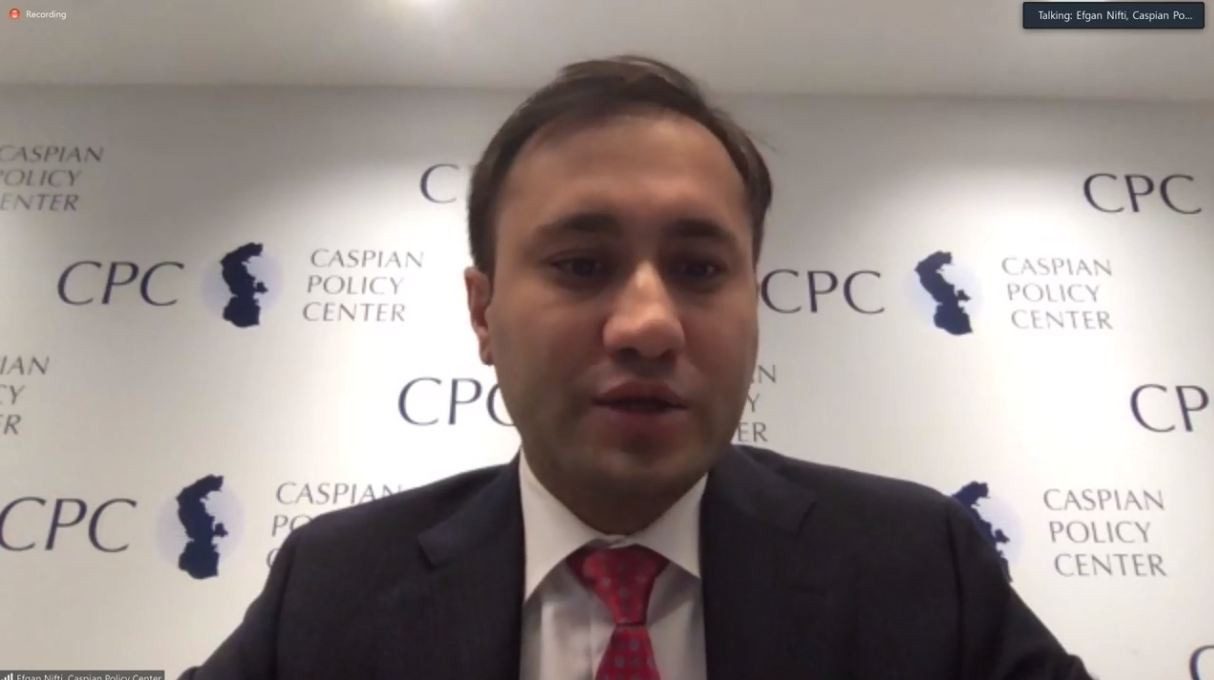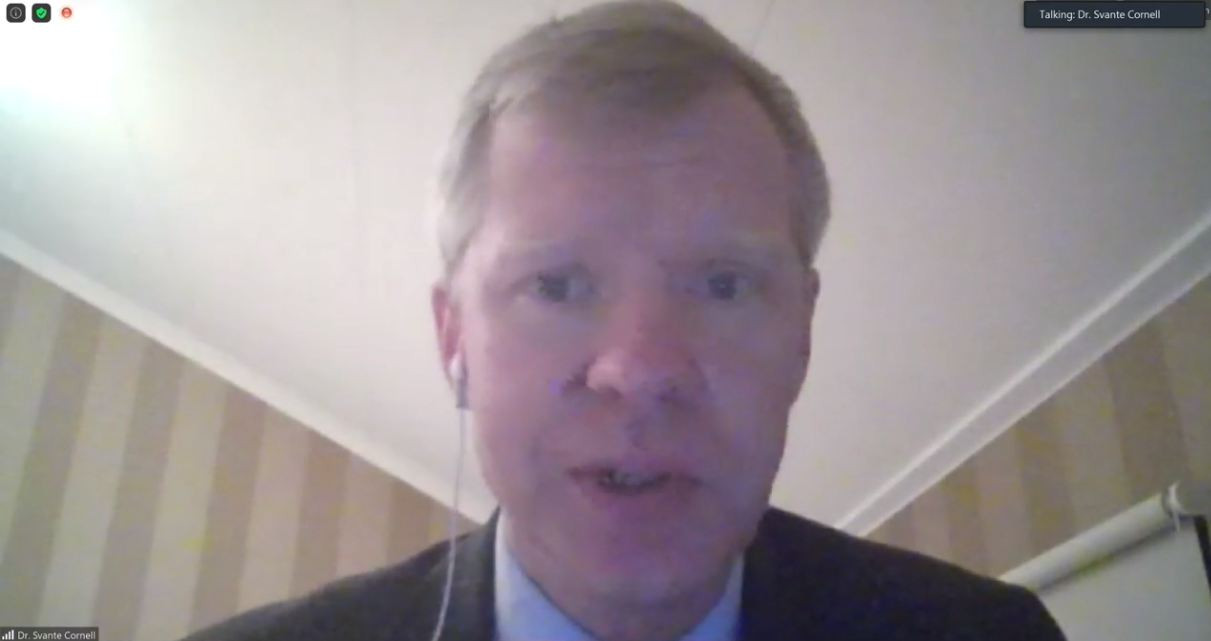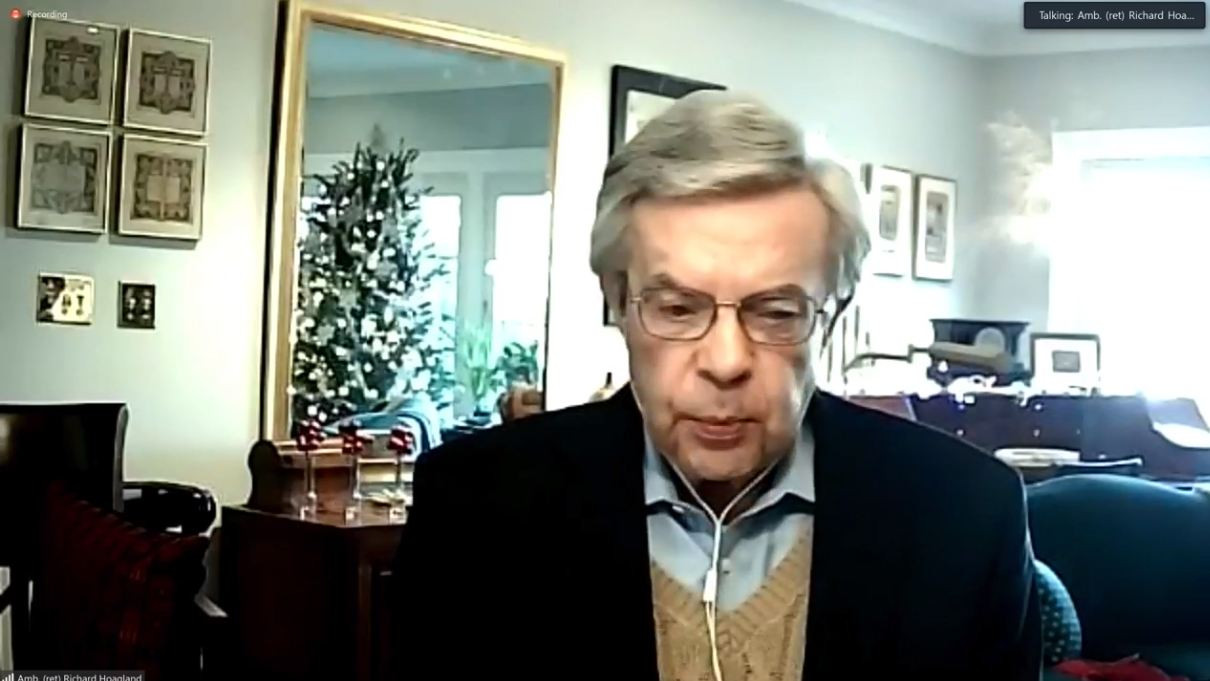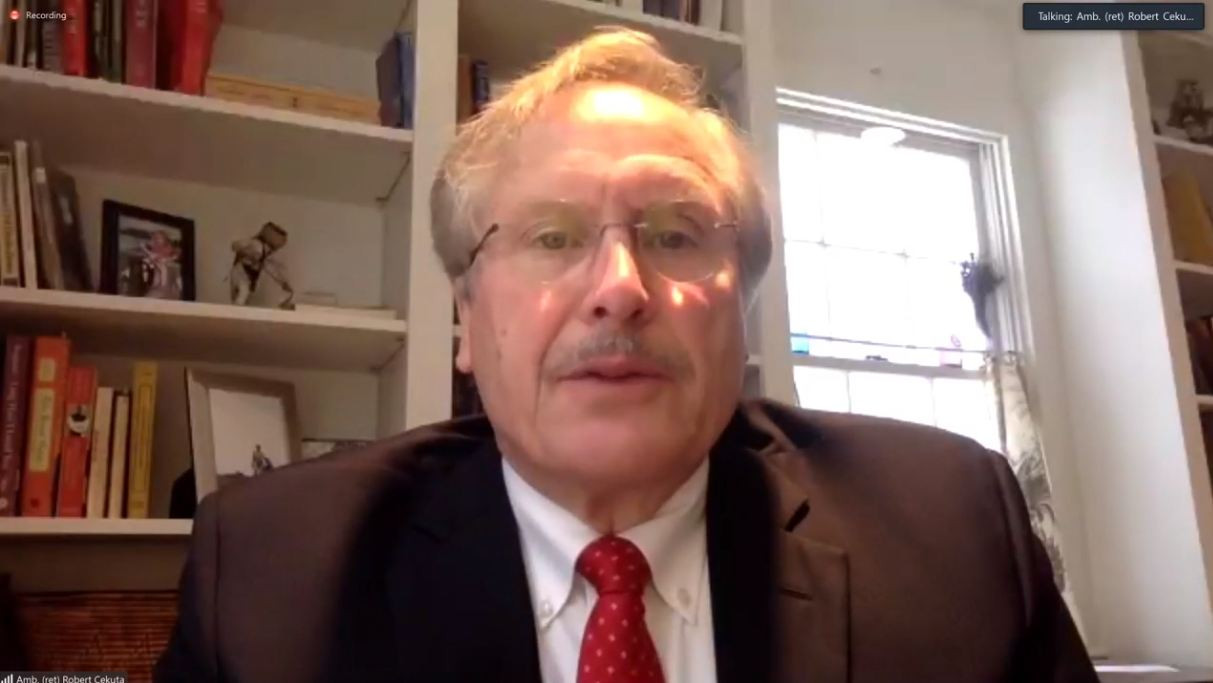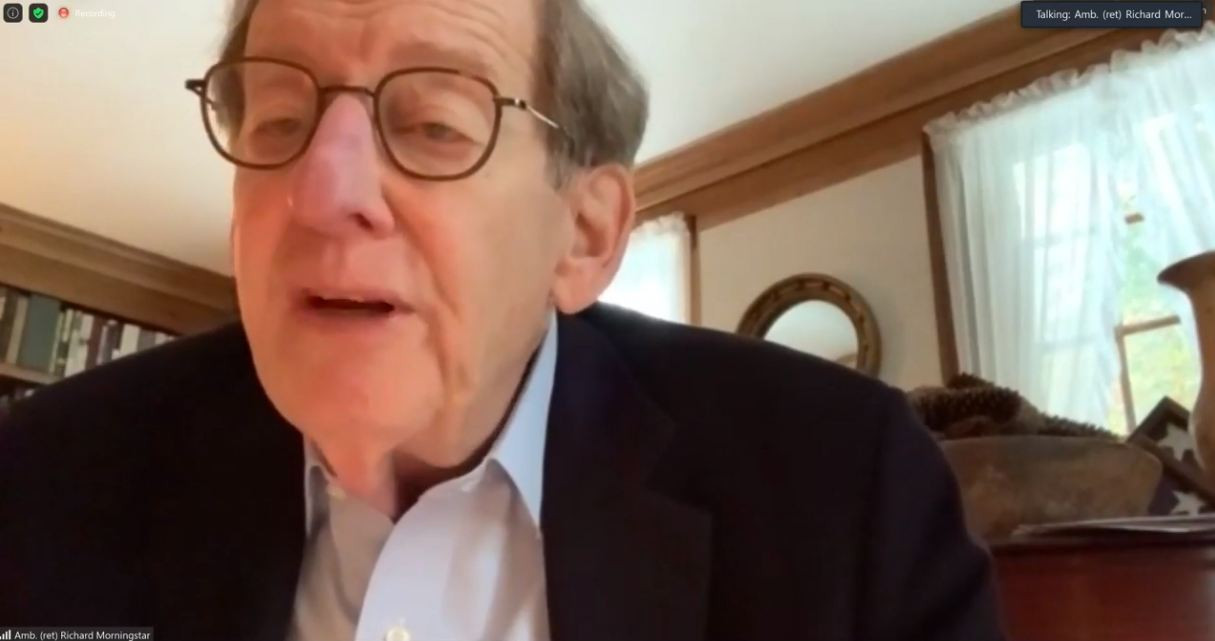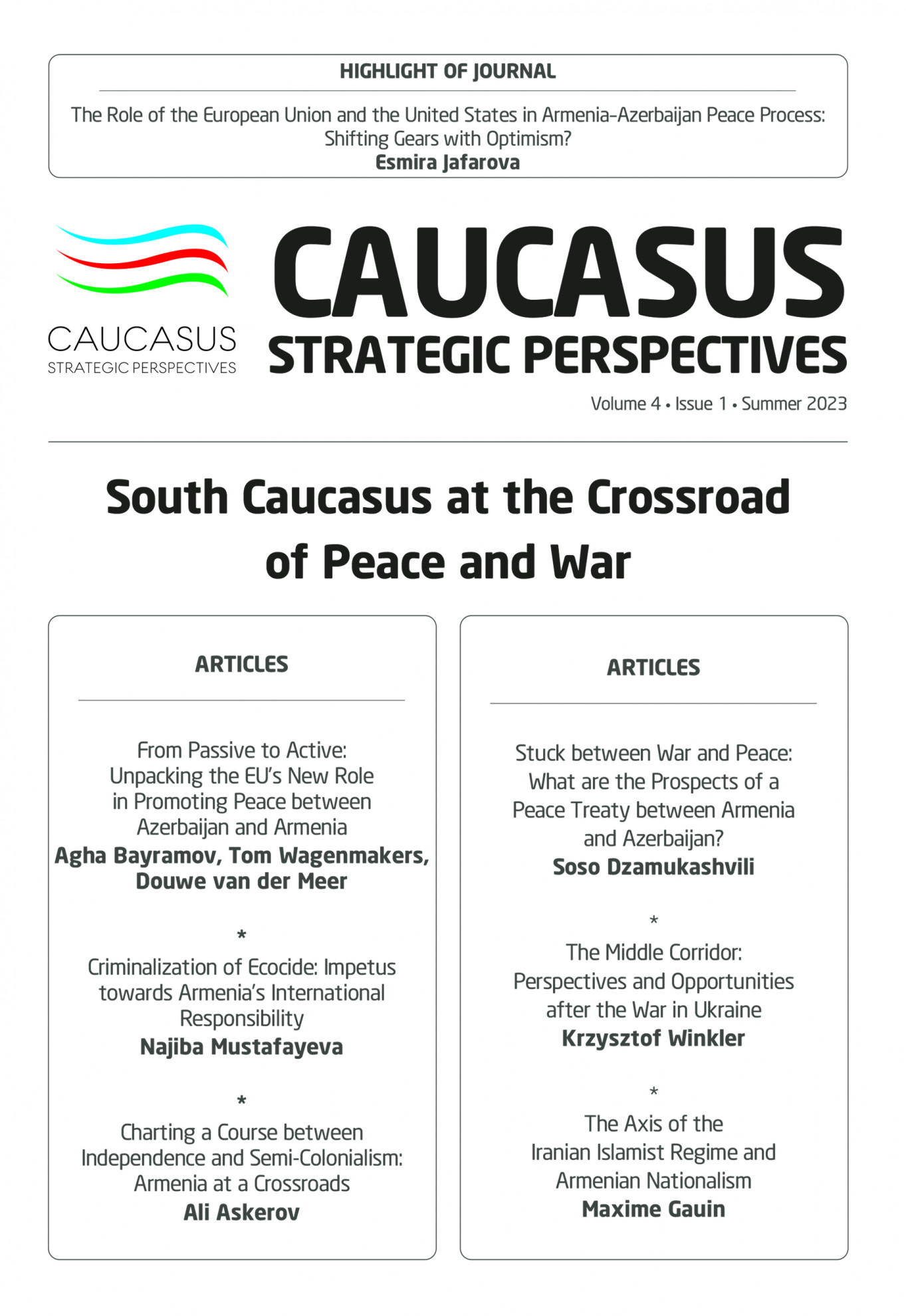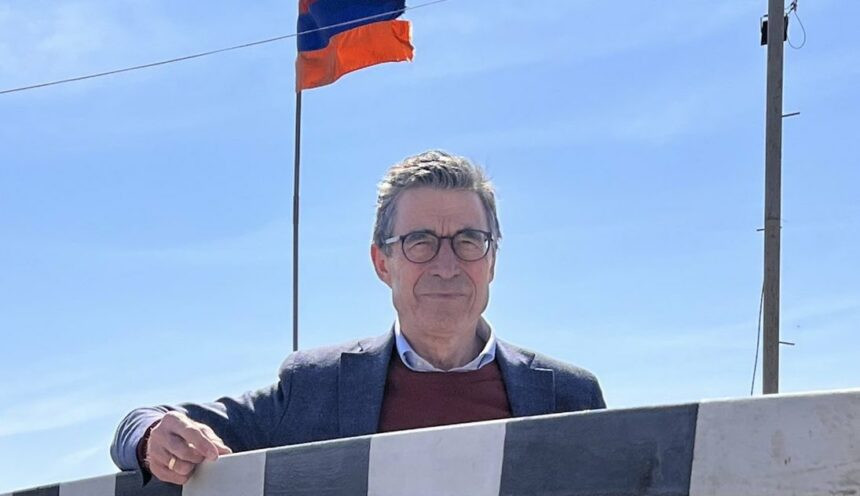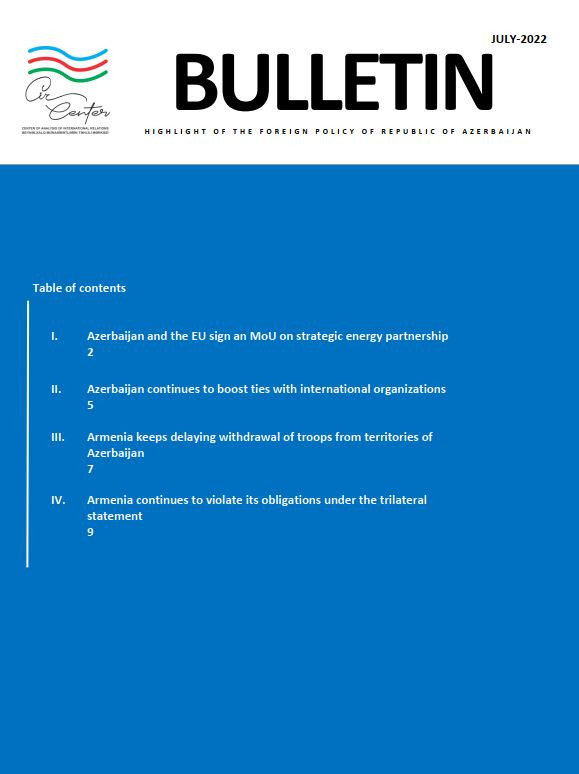The Center of Analysis of International Relations and the Caspian Policy Center (CPC) jointly organized an international webinar titled “Azerbaijan-US relations: Post-elections development in the aftermath of the Second Karabakh War”.
During the event moderated by CPC’s Security and Politics Program Chair, Richard Hoagland, the opening speech was made by Efgan Nifti, CPC’s Chief Executive Officer, who stated that the webinar comes at a very significant time both for the US and Azerbaijan. Efgan Nifti said their organization attaches great importance to the study of US-Azerbaijan relations and, overall, the greater Caspian region. In this regard, there is a need to discuss the recent changes in the US administration and US-Azerbaijani relations in the context of the Second Karabakh War.
AIR Center’s Chairman, Farid Shafiyev, stated that with the Second Karabakh War and the restoration of Azerbaijan’s territorial integrity, a new geopolitical reality has emerged in the region. He also mentioned another recent significant event in Azerbaijan, the operational start of the Trans Adriatic Pipeline. Referring to the Second Karabakh War, Farid Shafiyev said that the 27-year lasting negotiations yielded no results and the current Pashinyan leadership’s abandoning of the Madrid Principles as well as the July provocations led to a full-scale war: “The Armenian side confirmed that the July provocation was done by them, happening near transregional projects, not only Azerbaijan but the West has invested in”. He spoke about the activities of the OSCE Minsk Group, and especially France, saying that the country should blame itself for its one-sided approach. According to him, this behavior is not in the spirit of the role of mediator. The Minsk Group’s activities, as stated by Farid Shafiyev, are currently a formality: “I don’t think Azerbaijan would like to see any role for the Minsk Group”.
Speaking next, CPC’s Economy and Energy Program Chair and a former US Ambassador to Azerbaijan, Robert F. Cekuta, stated that the US traditionally views its relationship with Azerbaijan from a triangular view of security, energy/economic issues and the rule of law/ human rights issues. Despite the Trump administration’s “hands-off approach” from the region, Robert Cekuta stated that Azerbaijan should be of greater interest for the US: “given Azerbaijan’s geographic location, it sits at a key point of global mosaic in terms of how the US can deal with Russia, Iran and China. Azerbaijan has also developed into a regional hub connecting Europe with Asia”. He stated that the recent developments with the Second Karabakh War have dramatically changed the situation in the region, but the United States did not play a role in the process. For the future, Robert Chekuta believes that the new administration can move on to a new stage of relations with Azerbaijan, reconsider some policies, and “in terms of making peace between Armenia and Azerbaijan, the US can make valuable contributions”.
Richard Morningstar, the founding Director and Chairman of the Global Energy Center at the Atlantic Council and a former US Ambassador to Azerbaijan, also expressed hope that the Biden administration would be more involved in Azerbaijan and regional processes in general. According to him, Azerbaijan achieved great success during the Second Karabakh War and, years later, managed to liberate a large part of its territory. He said he wanted the conflict to be resolved completely and that all countries in the region, including Armenia, were interested in it.
Speaking next, Luke Coffey, director of the Allison Center for Foreign Policy Studies at the Heritage Foundation, made a number of proposals for the future of US-Azerbaijan relations. According to him, during the new administration, more officials should pay a visit to Azerbaijan. He also stressed the importance of opening a US consulate in Ganja, Azerbaijan’s second-largest city close to the conflict zone and Georgia. According to him, this will allow the United States to better understand the situation in those areas. He also said that the United States should increase its efforts in peacebuilding between Armenia and Azerbaijan.
During his talk, Svante Cornell, Director of the Central Asia-Caucasus Institute & Silk Road Studies Program Joint Center, said that although on paper, the United States and Azerbaijan are very close partners, this is not the case in reality, and he was not certain it would change any time soon. According to him, US-Azerbaijan relations reached the worst level during the Obama administration. The officials of the Obama administration who had the opposite position to Azerbaijan played a big role in this: “The role of the Armenian diaspora should not be undermined. There are, however, elements of change and today there are more realistic approaches in the US policies”. He expressed hope that the strategy for Central Asia adopted during Trump’s presidency would continue, noting the importance of Azerbaijan’s participation in this strategy. Touching upon the recent events on the frontline, Svante Cornell said that the war proved that Azerbaijan is no longer a small state but a mid-sized country: “Azerbaijan is achieving results based on priorities that it sets. You can see it with the conflict, and you can see it also with the domestic policies. This is something that the United States has to realize”.


